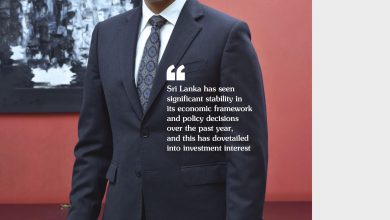LMDtv 2
 Businesses have more to worry about than maximising revenues and profits these days with environmental, social and governance (ESG) considerations claiming high priority on corporate agendas.
Businesses have more to worry about than maximising revenues and profits these days with environmental, social and governance (ESG) considerations claiming high priority on corporate agendas.
“There is a varying degree of sophistication in ESG that has come through in Sri Lanka,” said Sharika Senanayake, on LMDtv not long ago.
She is a director of the MAS Foundation for Change.
Senanayake elaborated: “Most corporates are aware that ESG is required, which is the baseline – it’s the least amount of interaction they have with it. Some corporates have understood how ESG – or specifically their sustainability goals – integrate with how they do business but these are the larger companies.”
“Smaller companies understand the pillars of ESG and have them as specific activities; but they’re not linked to their business. Then you have the rest of the people who think that CSR and ESG are interlinked,” Senanayake added.
She believes there is more potential for ESG to drive business operations in Sri Lanka: “I think everybody’s waiting for someone else to do something big so they can ride the wave.”
“We definitely need to do a lot more because the impact is exponential – years and years of what we’ve done got us to this state. If we want to sustain these standards at the very least, everybody has to move out of fossil fuels and look at renewable energy,” she asserted.
Senanayake continued: “We have to think about pollution; from a waste perspective, we need to have everybody looking at circularity. We’re definitely not doing enough as corporates or citizens at this point.”
“Globally, in the next 10 years every single person in the world has to put their best foot forward for ESG. Unfortunately, we in the southern hemisphere are the ones who will be seeing significant and aggressive climate change, which will only get worse year on year,” she warned.
She also discussed the cost implications of implementing ESG frameworks for companies: “What we’re trying to do with ESG is look at business in very simple terms – can we thrive as a business and not steal from future resources? What we’re asking companies to do is simply to make themselves relevant in the future.”
Adding to this, she cautioned that “if your business is causing any kind of environmental damage, the business won’t be long-term anyway – you won’t be able to thrive.” Senanayake urged companies to rethink their business to be self-sustaining.
Even smaller businesses can embark on a journey of ESG by being creative, and thinking about how they can add value to themselves and their customers, she urged: “Small businesses should look at how to use ESG as an advantage to either reduce costs or increase market share.”
Meanwhile, she recommended small actions such as avoiding plastic bags and switching to low-cost options used in the past, like newspapers and brown paper bags, or asking customers to bring their own bags.
“Sustainability can be intertwined with the final product portfolio too,” she said, noting how for instance, a clothing company can use waste fabrics to make bags and accessories, and create a zero waste business.
Apart from being environmentally sustainable, Senanayake called on businesses to be socially conscious and responsible: “It’s really important to be inclusive – especially in Sri Lanka where we’re witnessing a brain drain.”
And she explained that this can range from hiring retirees to tapping into the pool of people with disabilities to offer them job opportunities.
While adopting ESG practices sounds simple, companies face challenges “due to a fear of the unknown and a lack of creativity – meaning simply doing what you’re doing every day and not stopping to think how you can change to add value.”
Finally, Senanayake asserted: “I think those who don’t move towards ESG will be left behind and won’t reap the best benefits of their full potential as a business.”





